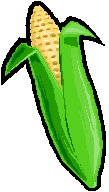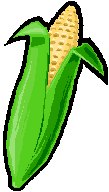


Why Agricultural Education?
I had never given agricultural education much thought until I entered college. After all, I grew up in a rural community and in a family with agricultural roots going back over 100 years. Many of my classmates had agricultural experiences: from growing up on a farm (like me) to detasseling corn on blisteringly hot Iowa summer days. Then I attended Northwestern University in Evanston, IL and realized that many of my classmates did not even know where Iowa was on a map, let alone what happened on a farm. For the first time, I was encountering very intelligent people who knew very little about how food was produced. This is concerning for several reasons:
1. Agriculture is a basic substance of life. Without food production we would not be here. It is important for children to know where this life sustaining food originates and appreciate the process that brings food their local store and dinner table.
2. There are agriculturally-based solutions to a number of world problems. Elementary school is a opportune time to get students started working on problem-based solutions to current issues.
3. The growing cycle can provide meaningful metaphors for life. There are draughts, floods, and good years in agriculture, just as there are similar times in our lives. How to overcome these obstacles can teach us important lessons about living, such as developing reserve resources, planning for potential obstacles, and diversifying interests.
4. Our country's history is rooted in agriculture. As our society becomes more urbanized, we risk developing ignorance about this part of our history. If we don't understand what agriculture is, how can we understand the lives of our ancestors?
Summary
I learned a lot not only on my topic but also on technologies that can help me in my future classroom. Going into this project I did not think there would be a whole lot of useful information on teaching agriculture. Growing up on a farm I thought the topic of agriculture would only interest those in rural schools and there would be limited information for teachers. I was wrong.
As a future teacher I was amazed at all the helpful resources I found on the internet on a subject that is very close to me. My inquiry showed me that issues and debates in agriculture are taught in classrooms throughout the country. I found lots of wonderful teacher resources, it was hard to narrow down things to ones I would include in this project.
My biggest problem was the time it took to sift through the incredible amount of useful and often not so useful information. My favorite site was the Department of Agriculture’s site Agriculture in the Classroom which has a searchable database for finding educational resources about agriculture for PreK-12 classrooms. My recommendation for other teachers is to give yourself a lot of time to do this sort thing and to stick to it because you never know where a "gem" will come from.
Coming into this class I had very limited technology skills, I knew how to surf the web, use email and chat rooms and type up papers on the computer. Now I have gained a higher degree of confidence on advanced things like formatting pictures and graphics, laying out and designing web pages, using search engines more effectively, and uploading all of my materials on the internet. My friends and family are really impressed with what I have done in this course and my ePortfolio.
The most important thing I learned from this class and Topic of Inquiry project is how students can investigate a topic, answer questions, solve problems and demonstrate their learning using state-of-the-art technologies. Learning how to do this will help students become life long learners; able to learn on their own for school work and important self development in life.